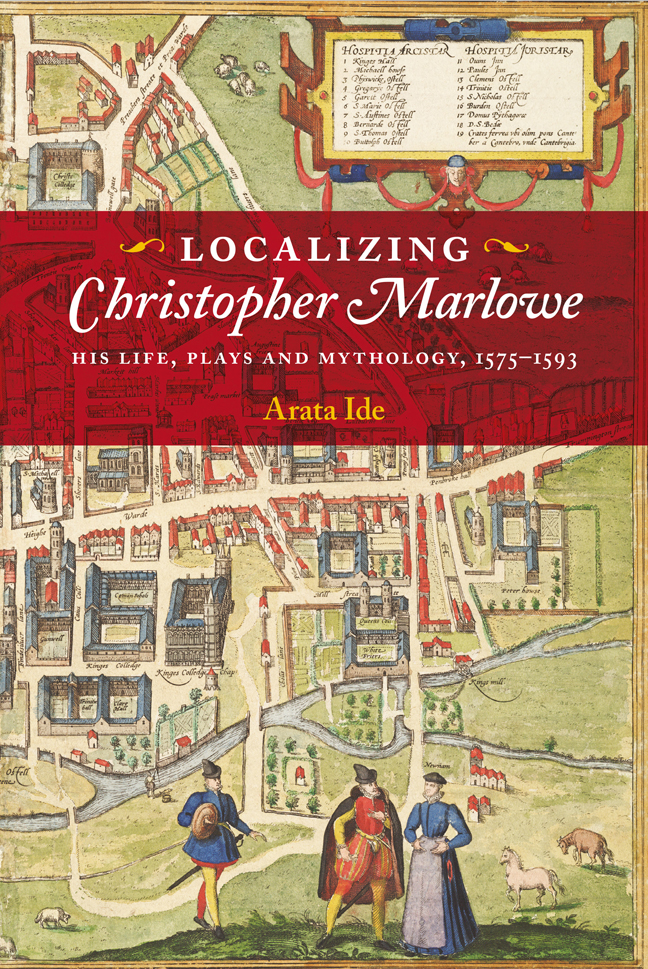Book contents
- Frontmatter
- Dedication
- Contents
- List of Illustrations
- Acknowledgements
- List of Abbreviations
- Timeline
- Note for the Reader
- Introduction
- Part I Life
- Part II Plays
- Part III Myths
- Conclusion
- Appendix 1 Transcript of the plan in Norfolk Record Office, NRS 23372, Z99
- Appendix 2 Transcript of the plan in Corpus Christi College Archives, CCCC08/28
- Appendix 3 Transcript and translation of the John Marley vs Nevell Hayes case
- Appendix 4 List of Foundation Scholars of Corpus Christi College, 1573–87
- Bibliography
- Index
- Miscellaneous Endmatter
5 - Dido, Elizabeth I, and the University Playwrights
Published online by Cambridge University Press: 22 February 2024
- Frontmatter
- Dedication
- Contents
- List of Illustrations
- Acknowledgements
- List of Abbreviations
- Timeline
- Note for the Reader
- Introduction
- Part I Life
- Part II Plays
- Part III Myths
- Conclusion
- Appendix 1 Transcript of the plan in Norfolk Record Office, NRS 23372, Z99
- Appendix 2 Transcript of the plan in Corpus Christi College Archives, CCCC08/28
- Appendix 3 Transcript and translation of the John Marley vs Nevell Hayes case
- Appendix 4 List of Foundation Scholars of Corpus Christi College, 1573–87
- Bibliography
- Index
- Miscellaneous Endmatter
Summary
The heyday of Cambridge University drama lay between the 1540s and 1560s, during which time more than a third of all known performances occurred. This was primarily due to the strong influence of humanists and Reformers, who regarded acting in classical plays as a good way to train the youth in schools and universities, but it went hand in hand with the reorganization of the traditional pedagogy of the liberal arts. It is no coinci-dence that St John's College established a statute in 1545 requiring students to act in a play at the same time that John Seton, a fellow at the college, published the first edition of Dialectica, a humanist textbook on dialectics.
Yet the university authorities seem to have realized the potential political threat of religious drama as early as 1545, when Pammachius was acted at Christ's College. This anti-papal polemical play was written in 1538 by Thomas Kirchmayer of Sulza in Thüringen, ‘possibly for a production for school-boys’. It tells of Pammachius, an imaginary Roman bishop and anti-Christ who has grown weary of the gospel and now wants to team up with Satan to gain worldly power and pleasures. According to the report of Matthew Parker, the vice-chancellor at that time, the two fellows at Christ's who produced the play omitted ‘all such mattyer wherby offense might Iustly haue rysen’, as there was ‘inspersed thorough out the tragedie both slanderous, cavillatious & suspitious sentence’. However, a fellow of the college, possibly with Catholic sympathies, submitted a complaint to Stephen Gardiner, the chancellor of the university and defender of orthodoxy. Having perused ‘the boke of the Tragedie’, Gardner himself found ‘moch matier not stryken out’ and that ‘vntruth is soo maliciously weved / with truth as making the bishop of Rome with certain his abuses [â¦] soo many abhominable and detestable lyes be added and mingled with the othir truth as noo christen eares shuld paciently heare’. This controversy demonstrates that dramatic productions could often become politically combustible through entanglements in local and religious struggles, and it is no wonder that the authorities, by taking a cautious stance towards the performance of drama, tended to put a dampener on its growth.
The rise of religious radicals openly expressing grave doubts about the benefits of humanist practice was not the only cause of the change in both the cultural climate and the social role of college drama.
- Type
- Chapter
- Information
- Localizing Christopher MarloweHis Life, Plays and Mythology, 1575-1593, pp. 149 - 174Publisher: Boydell & BrewerPrint publication year: 2023



